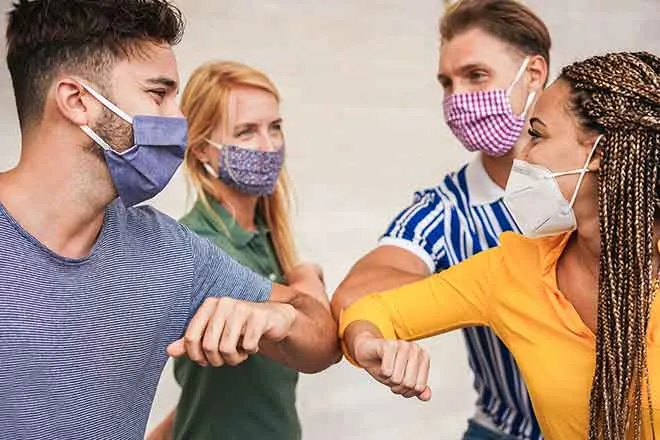
Daily Audio Newscast Afternoon Update - May 30, 2025
© INDU BACHKHETI - iStock-1336427297
News from around the nation.
Trump makes a new push to 'decouple' U.S. from China; 'Get ready now' for active hurricane season; Third Ohio city joins global pact to strengthen food systems; Funding cuts risk care for 816,000 at PA community health centers.
Transcript
The Public News Service Friday afternoon update, I'm Mike Clifford.
The Trump administration has threatened to revoke the visas of many of the 277,000 or so Chinese students in the US and to subject future applicants from China, including Hong Kong, to extra scrutiny.
That for the New York Times.
At the same time, they report cargo ships laden with goods from China stopped coming into American ports early this spring as Trump escalated his trade war against Beijing and the Trump administration is suspending sales of some critical U.S. technologies to China.
The Times notes taken together these actions by the administration amount to an aggressive campaign to decouple the U.S. from China and toss away what had been the anchor of the relations between the nations for decades.
And hurricane season officially starts tomorrow, June 1st.
Georgia's coastal communities are being urged to get a head start on storm prep.
The National Oceanic and Atmospheric Administration or NOAA expects a higher than usual number of hurricanes this year.
That makes early planning crucial for the 100 mile stretch of Georgia's coast and the more than one million people living in potential evacuation zones.
Savannah Mayor Van Johnson says it's time to think ahead, not just about weather, but about safety and having a plan that works.
There is a high probability, according to Noah, that we will see 13 to 19 name storms, six to 10 hurricanes and three to five major hurricanes this season.
Forecasters say the chance of more storms this year comes down to a mix of warmer ocean waters and weather conditions that make it easier for hurricanes to form and strengthen.
Shantia Hudson reporting.
And the city of Cleveland has joined a global pact to improve urban food systems.
Cleveland recently completed its first food policy landscape and audit, a citywide review of food-related programs and policies.
Zaina Pixler with the Cleveland Department of Public Health says the move is part of a broader strategy to better understand and shape the local food system.
Now we're really taking a holistic view, looking at how it impacts our local economy, how it impacts public health, also take ownership over their food system and promote food sovereignty here in Cleveland.
Cleveland joins Columbus and Cincinnati as Ohio cities that are now part of the Milan Urban Food Policy Pact.
Farah Siddiqui reporting.
This story was produced in association with media and the public interest and funded in part by the George Gund Foundation.
And more than 800,000 folks in Pennsylvania who rely on local community health centers could face new barriers to care if proposed Medicaid cuts approved by the U.S. House become law.
Amy Wexler with the Wright Center for Community Health says its 13 clinics serve people regardless of insurance or ability to pay.
Because community health centers, including the Wright Center, serve a large portion of Medicaid patients, any cuts to Medicaid funding could seriously jeopardize the primary care safety net and limit access to care for those folks.
She says Medicaid connects their patients to everything from school-based screenings to addiction treatment and mental health services.
This is Public News Service.
As families in Michigan and elsewhere struggle with daily living expenses, bills introduced earlier this month could alleviate their financial burden.
Senate bills 308 and 313, also called the Building Blocks Plan, would provide a $550 tax credit to working families with children up to age 3.
Another feature is the Rx Kids Plan, a $1,500 cash allowance during pregnancy and $500 monthly through the child's first year.
Senator Sylvia Santana acknowledges that as child care and grocery costs rise, wages have not been sufficient to sustain a family.
What we're doing with this package of bills is making sure that families don't have those concerns when it comes to being able to sustain their family financially.
So whether it be cutting the taxes for working families that don't receive a lot of income, I think that's really important to being able to get back to a place where they can feel supported in our state.
Santana, who sponsored the RxKids plan, thinks the focus should be on the baby rather than worrying about affording diapers or rent.
Since 2015, Michigan has lost 40 percent of its child care capacity as young workers leave the workforce.
I'm Terry Dee reporting.
And meeting America's future energy demands requires big decisions by utilities and policy makers about the best way to do it.
Mitchell Tech has just hired a new instructor to lead its wind turbine technology program, which had been paused for a reset.
Vice President for Academic Affairs Scott Fossum says there's a lot of demand for jobs in this field and they want to prepare students for newer skills needed, such as repairing wind towers that have been operating for years.
There are so many wind farms around South Dakota, upper Midwest, they're still going to need technicians to make sure that everything is up and running and they still can be functional.
South Dakota often ranks second in the nation for wind energy generation.
I'm Mike Moen.
And finally, as New York lawmakers revisit the idea of having a medical aid in dying law, studies show racial disparities in end-of-life care options.
Research finds Asian Americans, Native Hawaiians and Pacific Islanders are less likely to know about or use hospice care, and this population is second highest in the nation in New York.
Ben DeGuzman with the Washington, D.C. Mayor's Office is the son of Filipino immigrants.
He says cultural beliefs as well as language can be barriers to conversations about death and dying.
"Because our communities don't speak English at the same rate as other communities do, Being able to talk to doctors is a problem.
Health insurers, especially within the context of death or dying legislation.
Many have marked AANH and PI Heritage Month in May.
New York's medical aid in dying law passed the state assembly this month and awaits action in the Senate.
If it passes, New York would be the 11th state, along with Washington, D.C., to enact such legislation.
I'm Edwin J. Vieira.
This is Mike Clifford for Public News Service, member and listener supported.
Find our trust indicators at publicnewsservice.org.

















